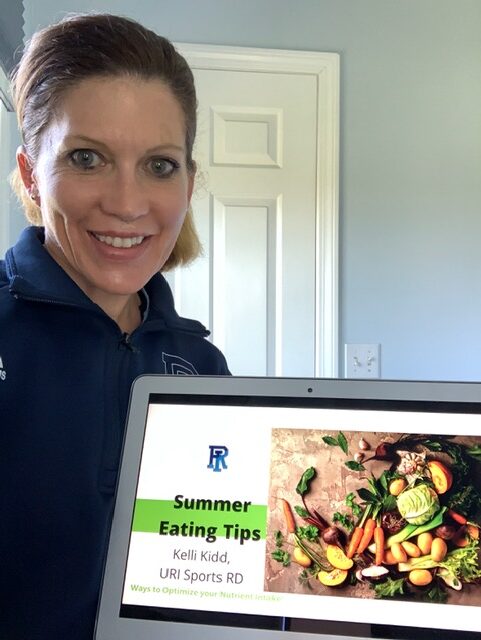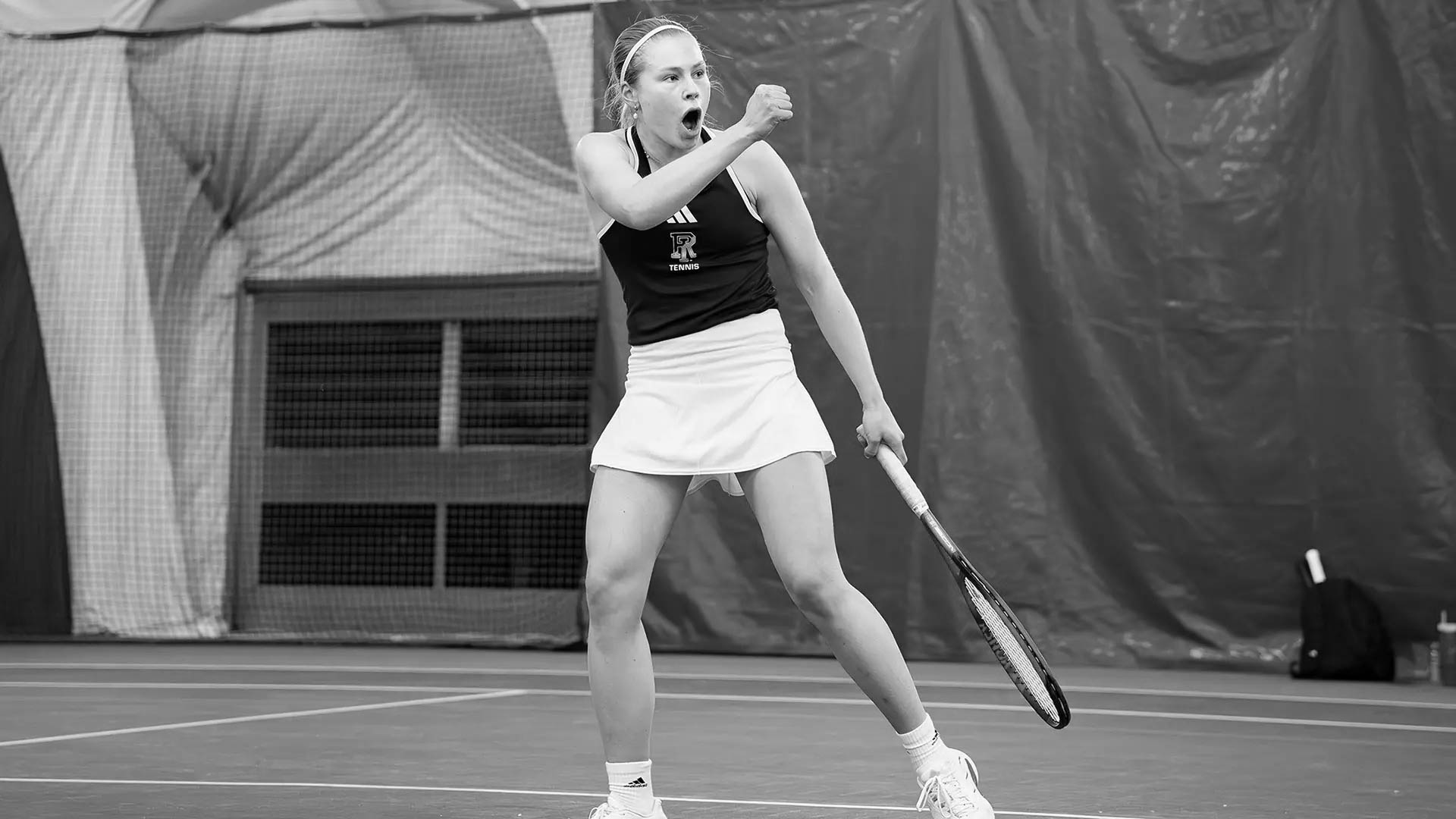Specialist Kelli Kidd offers nutrition counseling for athletes at URI. Photos contributed by Kelli Kid.
For Kelli Kidd, all components of living a healthy life come down to nutrition; especially her career.
Kidd, a nutrition specialist in sports nutrition in her third year at the University of Rhode Island, holds nutrition counseling sessions for athletes and teams across all of the 16 Division I sports on campus and makes nutrition plans depending on the athletes’ needs.
According to Kidd, both coaches and athletes come to her asking for help to improve their diets. Coaches will ask her to speak to their team at-large, but also in the case of helping their athletes recover from injuries. While it may not be the easiest thing in the world to get a college-aged student to listen to a professional, Kidd does see the buy-in.
“Especially [with] the athletes that seek out information regarding their nutrition plan, just like everything else they are trying to do with their nutrition plan to impact performance, they are generally very interested in taking the recommendations to heart,” Kidd said.
In terms of specific nutrition plans, the former Emory University Hospital intern said height, weight, gender and what sport they play are all factors that affect what an athlete needs to succeed. Carbohydrates and protein needs are also different for various athletes, but Kidd emphasized that protein needs are high all across the board.
Kidd has had a special interest in nutrition from an early age. Looking to improve her time in high school running events, she began to focus on what she ate in order to give herself an edge over her competitors. Gearing towards more carbohydrates, she began to shave minutes off of her time, with recovery also seeing improvement.
Kidd graduated Penn State as a two-time All-American in the 10,000-meter, and it was what she put into her body that inspired her career on the track and beyond.
“Nutrition was really vital to performance,” Kidd said. “When I got my nutrition plan down pat, the way I felt was amazing, and I wanted to be able to share that with other athletes.”
Not only does Kidd have her master’s degree in nutritional sciences from the University of Washington, she worked to gain her diploma in sports nutrition from the International Olympic Committee in 2018. The degree, which took two years to achieve, allowed her to talk to and learn from top nutritionists all over the world, including England and Australia.
“It really gave me the extra edge I was looking for,” she said of the degree.
Even though Kidd loves her time at URI, the highlight of her career so far was her decade-long stretch as the lead dietitian for the United States Corps of Cadets at the United States Military Academy. The stakes were always high, as many cadets’ lives partially were dependent on their health.
“Their lives truly depended on their nutrition status,” Kidd said. “If you eat well, you will have a better outcome on the battlefield if you get wounded.”
Kidd explained that the more muscle mass a person has the better chance they have of surviving the wound.
This semester presents a challenge unforeseen in Kidd’s nearly 25-year career. With no sports for the majority of student athletes for the next few months at least, she wants the students to use this time to put together a consistent eating plan to follow through on for when competition does return. Injury recovery, sleep, stress relief and keeping immune systems strong are also components she is emphasizing.
“If heaven forbid anybody gets [COVID-19], they will have a better outcome [with proper nutrition], ” she said. “It will hopefully be a quick thing and they will be better as opposed to something that will linger.”
Kidd doesn’t draw up blitz packages or after timeout sets, but her gameplans are some of the most important at URI.



